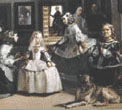In antiquity rhetoric was education, the leading out of the child from the private world of the family (and the family's responsibility for suitable training) to the social and political worlds. Learning to write well, which meant, on the one hand, a complicated technique, and, on the other hand, a discrete (primarily literary) body of knowledge, was the necessary preparation for what was seen as the only truly human existence: that of a participant in the social life of the community and the political life of the state.
Michael Holzman
Kevin DeLuca . . . defines rhetoric as "the mobilization of signs for the articulation of identities, ideologies, consciousnesses, communities, publics, and cultures" (17).
Sharon Crowley
[Rhetoric] deals with "questions surrounding any study of language: the relation between language and the world, the relation between discourse and knowledge, the heuristic and communicative functions of verbal expression, the roles of situation and audience in shaping utterance, the social and ethical aspects of discourse. . . ." (Knoblauch 27)
Christine Farris
But as Kenneth Burke has taught us, rhetoric may be defined very broadly (e.g., I tell the students in my undergraduate rhetorical theory class that the study of rhetoric is the study of how we use language and how language uses us).
Krista Ratcliffe
Milton, Swift, and Pope, for example, can be called 'rhetors' without apology in the sense that they invented works which they hoped would intervene in civic discourse, using topics, genres, conventions, and figures taught in school by rhetoricians (Clark).
Sharon Crowley
What rhetoric has always addressed: not the mastery and regulation of language so much
as the ways in which language shapes, reflects, and changes practices among members of
particular communities.
Christine Farris
Copyright ©
Enculturation 2003
|

